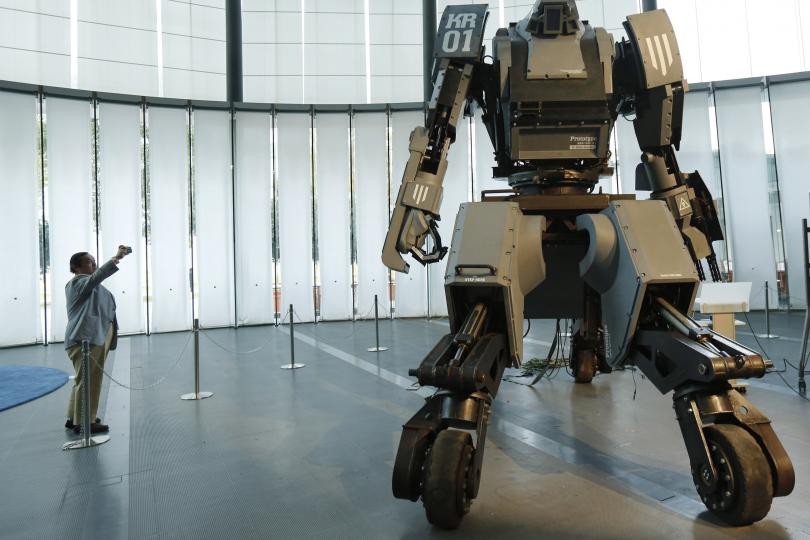
Samsung Techwin and Korea University developed the SGR-A1, the kind of “killer robot” more than 20 countries seek a total ban on ahead of a UN meeting next week on autonomous weapons.
AI Leaders Up in Arms over Banned Weapon Plans
The United States, the UK and China are already building AI-driven war robots and machines–but concerns about the plans of a South Korean University known as KAIST to exploit the technology prompted a protest letter from experts in 30 countries.
An article from The Guardian by Benjamin Haas describes how more than 50 leading academics signed the letter calling for a boycott of Korea Advanced Institute of Science and Technology (KAIST) and its partner, defense manufacturer Hanwha Systems. The researchers said they would not collaborate with the university or host visitors from KAIST over fears it sought to “accelerate the arms race to develop” autonomous weapons.
“There are plenty of great things you can do with AI that save lives, including in a military context, but to openly declare the goal is to develop autonomous weapons and have a partner like this sparks huge concern,” said Toby Walsh, the organiser of the boycott and a professor at the University of New South Wales. “This is a very respected university partnering with a very ethically dubious partner that continues to violate international norms.”
Hanwha is one of South Korea’s largest weapons manufacturers, and makes cluster munitions which are banned in 120 countries under an international treaty. South Korea, along with the US, Russia and China, are not signatories to the convention.
KAIST’s president, Sung-Chul Shin, said he was saddened to hear of the boycott. “I would like to reaffirm that KAIST does not have any intention to engage in development of lethal autonomous weapons systems and killer robots,” Shin said in a statement.
So, it’s a case of he said, she said regarding these autonomous weapons. The border between the Koreas is a well-known powderkeg of tension that could result in the whole peninsula exploding, especially with a group of robotic warriors directed to protect their side of the line.
In recent years, Hanwha has singled out the Middle East as “a prime and strategic market” and sought to expand with acquisitions of rival companies. The company partnered with Indian firm Larsen & Toubro to secure a reported $660 million weapons contract as part of the beginning of a plan to overhaul the Indian military.
“Developing autonomous weapons would make the security situation on the Korean peninsula worse, not better,” he said. “If these weapons get made anywhere, eventually they would certainly turn up in North Korea and they would have no qualms about using them against the South.”
The company also makes people carriers not just people killers.
South Korea university demonstrates people-carrying robot.







Leave A Comment